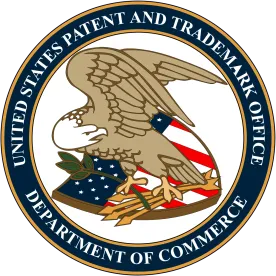The U.S. Patent and Trademark Office (“USPTO”) recently published a notice of proposed rulemaking for public comment setting forth a new administrative process to investigate and sanction those who fraudulently file trademark applications or maintain registrations. Such suspicious filings include applications made by foreign parties (Chinese applicants included among them) with no intention of using a claimed mark in commerce, or include fabricated evidence of use for new applications or submissions to maintain or renew registrations. This USPTO action, together with the Trademark Modernization Act (“TMA”), which we have written about before, here, here, and here, are much-needed steps to discourage and punish fraudulent trademark filings.
The proposed rule sets forth the procedures by which the USPTO will identify (or become aware of) a possibly fraudulent filing in connection with a trademark application or registration. Such filings could include maintenance and renewal declarations showing ongoing use of a trademark allowing the registration to continue in full force and effect between the fifth and sixth anniversary of registration, and every decade following registration. The USPTO has set up email addresses for the public to use to alert it to suspicious filings. The USPTO will then investigate. (Currently, the only way to alert the USPTO is through a letter of protest, which is more involved than a simple email.)
Once an investigation occurs, the application is removed from examination and the publicly available Trademark Status and Document Retrieval (TSDR) record, which sets forth the examination history, will reflect the suspension. The applicant or registrant will be advised of the suspension and will not be allowed to make further electronic submissions except to expressly abandon the application or surrender the registration. Any other submission requires a petition to the Director of the USPTO. If the investigation does not disclose wrongdoing, the suspension will be lifted and the application/registration assigned.
If the USPTO does find wrongful conduct, an Order to Show Cause will issue. The Order will require the applicant/registrant to show why sanctions should not be imposed and will specify the sanctions to be imposed if the applicant/registrant does not provide a sufficient response.
Types of sanctions include the following: (1) terminating the involved registration/application; (2) striking a submission; (3) precluding a party from appearing before the USPTO on trademark matters; and/or (4) deactivation of the uspto.gov account enabling electronic trademark filings.
Once the applicant or registrant responds to the Order to Show Cause, if the USPTO finds a violation of the USPTO rules or USPTO website Terms of Use (which prohibit fraudulent filings), the USPTO will issue a final decision including an order for sanctions. The order will be publicly available in the TSDR record. An involved registration will not necessarily be immediately terminated, but the order may affect the validity of the registration and will be considered a final decision adverse to the registrant’s right to keep a mark on the register. This severely reduces the ability of the registrant to enforce the registration, so a new application for the mark is probably well-advised.
These actions are much-needed steps by the USPTO. However, as we have written before there still are scammers who send out fraudulent notices with false maintenance and renewal dates, defrauding registrants into sending thousands of dollars to the scammers, who never maintain/renew the registrations. The inexorable conclusion: trust only a reputable trademark attorney to register your valuable brands with the USPTO.




 />i
/>i
